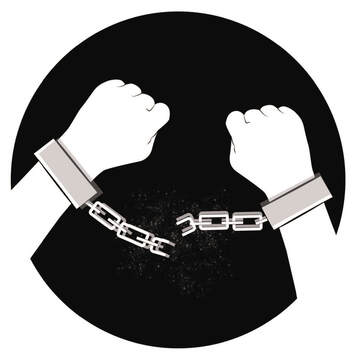
TREATMENT / TAKING A BREAK
Unlike treatment for opioid dependency, currently there are no pharmaceutical substitutes for methamphetamine addiction. Ongoing research does aim to find a replacement drug in the future. In the meantime, treatment options for meth do exist. Treating meth addiction is similar to treating other stimulant drug addictions like cocaine, with similar success rates. Visit your local harm reduction organization or Mental Health and Substance Use office for advice on how to get started with a detox and treatment program.
If you are thinking about taking a break or quitting, the following information adapted from ACT Toronto will give you an idea of what to expect.
Meth withdrawal is more mental than physical. As hard as it is, coming down from crystal is the body’s way of resetting You’ll probably feel:
Remember: if you can stick it out, withdrawal symptoms will pass.
Below is a general idea of what the early stages of taking a break or quitting meth is like:
0-2 Weeks:
Acute Withdrawal Phase.
This is the hardest part to get through. Some of the symptoms include:
Coping With It
Your body and mind are resetting. Take it easy on yourself. Getting through will take some time. Here are a few tips to help you make it through:
3 Weeks to 1 Month
The worst of withdrawal is likely over, but cravings for meth remain.
You are probably still dealing with:
On the flipside, you are starting to put some weight back on and feel healthier. Mental clarity is coming back and the mood swings are a bit more manageable.
1 Month to 3 Months
Cravings are still there, but they are more manageable. Mood still fluctuates, but maybe not so extremely. You might be re-establishing connections with family and friends. Housing and income might also be getting more secure by now. Sense of confidence in your ability to cope without meth is increasing but be careful: many people relapse at this point because they believe they have their addiction under control.
The importance of talking to an addictions councillor/joining a support group cannot be overstated!
Unlike treatment for opioid dependency, currently there are no pharmaceutical substitutes for methamphetamine addiction. Ongoing research does aim to find a replacement drug in the future. In the meantime, treatment options for meth do exist. Treating meth addiction is similar to treating other stimulant drug addictions like cocaine, with similar success rates. Visit your local harm reduction organization or Mental Health and Substance Use office for advice on how to get started with a detox and treatment program.
If you are thinking about taking a break or quitting, the following information adapted from ACT Toronto will give you an idea of what to expect.
Meth withdrawal is more mental than physical. As hard as it is, coming down from crystal is the body’s way of resetting You’ll probably feel:
- Moody
- Sleep a lot
- Experience intense cravings
Remember: if you can stick it out, withdrawal symptoms will pass.
Below is a general idea of what the early stages of taking a break or quitting meth is like:
0-2 Weeks:
Acute Withdrawal Phase.
This is the hardest part to get through. Some of the symptoms include:
- Exhaustion
- Depression
- Irritability
- Anxiety
- Intense cravings for speed
- Sleeping a lot
- Feeling super hungry
- Swinging emotions (from anger to hopelessness)
- Scattered thoughts
- Inability to concentrate or focus
- Aches, pains, and headaches.
- Paranoia
- Hopelessness
Coping With It
Your body and mind are resetting. Take it easy on yourself. Getting through will take some time. Here are a few tips to help you make it through:
- Sleep as much as you can.
- Minimize stressful situations or people that trigger you.
- Hydrate and eat plenty of nourishing foods
- Call on supportive people to help you.
- Talk to an addictions councillor.
- Join a support group.
- Remember-as hard as this stage is, it will pass!
3 Weeks to 1 Month
The worst of withdrawal is likely over, but cravings for meth remain.
You are probably still dealing with:
- Depression
- Restlessness
- Difficulty sleeping
- Anxiety
- Boredom
On the flipside, you are starting to put some weight back on and feel healthier. Mental clarity is coming back and the mood swings are a bit more manageable.
- Now is a good time to start building a routine. Re-engage with life, celebrate what you have accomplished so far, and set some new goals for yourself.
- Get physical-exercise and use your body!
1 Month to 3 Months
Cravings are still there, but they are more manageable. Mood still fluctuates, but maybe not so extremely. You might be re-establishing connections with family and friends. Housing and income might also be getting more secure by now. Sense of confidence in your ability to cope without meth is increasing but be careful: many people relapse at this point because they believe they have their addiction under control.
The importance of talking to an addictions councillor/joining a support group cannot be overstated!